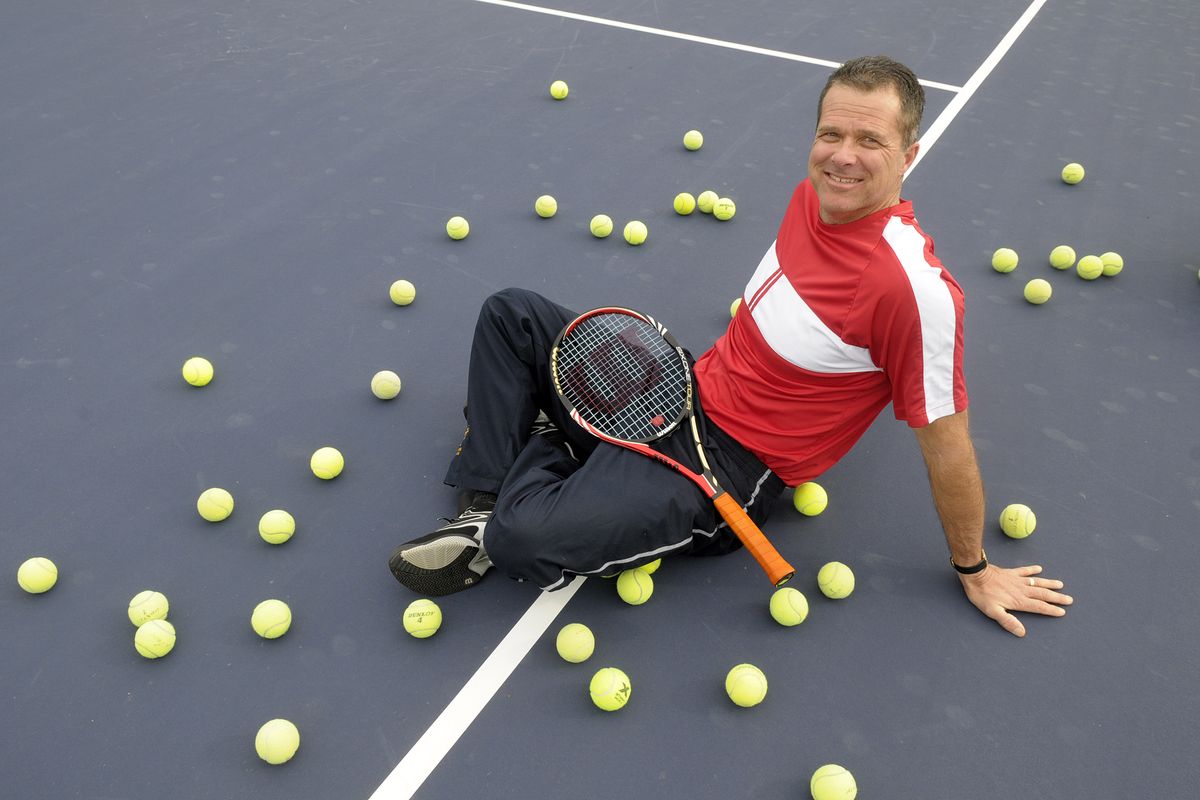Serving up family time
Colbert man left coaching to focus on fatherhood

Steve Clark was arguably at the top of his career as the head men’s tennis coach at the nationally ranked University of California at Irvine in 2006. Then he shocked colleagues by announcing his retirement at age 44 and moving to the Spokane area to be near family.
Clark, who played one year professionally and was an All-American when he played for University of California at Davis, knew Spokane wasn’t a tennis destination on anyone’s map. But he said he “felt total peace” about the decision, which was motivated by love for his wife and three young children.
“I did it because I wanted to spend more time with my kids,” he said, explaining that he didn’t want to be a “Division I Dad” with his kids wondering when he would be home.
“Quality time,” asserted Clark, “only comes out of quantity time.”
After announcing his decision, Clark e-mailed an explanation to a network of coaches across the country. “Most were jealous,” he recalled.
Now, four years later, the Colbert resident has no regrets about his choice. Clark is pursuing a doctorate through the Talbot School of Theology and writing his dissertation about involved fathers. “I want to encourage dads to take the reins and responsibility for how kids are.”
He’s also not really retired. When he isn’t researching, studying or helping his wife, Kelly, homeschool their children, Clark teaches tennis lessons and helps coach the Whitworth tennis team. He also teaches Moo Duk Kwan, a traditional Korean martial art, at the YMCA and philosophy at the Moody Bible Institute.
“I’m busy,” he said, describing himself as a Double-A personality. “I feel pleasure going full speed. I have to do stuff.”
But over the past few years, Clark said he has learned to temper his fast-paced drive. To ensure he spends time on the people and things that matter most to him, Clark said he evaluates everything in his life to see what tasks and obligations he should drop, delegate or delay. When he does that, it frees time and energy so his family continues to stay front-burner.
“We act based on our core beliefs,” Clark explained. For Clark, his faith is the core belief from which everything else springs. “I believe God’s in control. He has my best purposes. I realized I don’t have to do things to secure my lot in life, to rest in that.”
That belief was perhaps tested most during a four-year, heart-rending journey toward parenthood. His eyes filled with tears as he described grieving with his wife through lost baby after lost baby. “Then Graham was born,” he said. “It was amazing. I was blown away. He was a miracle.” The Clarks also have two girls, Grace and Joy.
Though he loves to work and stay busy, he said, “I’m fortunate. I’ve lived a full life. Now it’s about the kids and Kelly.”
With three kids under age 10, it is a daily decision and opportunity for Clark to make them feel important and valued. “I have choices to make. I’m highly involved with the kids,” he said, describing how he asks himself, “do I need to do this right now?” when his children ask for attention.
He shook his head. “You tell a kid, ‘in a minute.’ You don’t want phrases like that coming back.”
Of course, almost 20 years spent coaching does play into his parenting. As both a coach and father, Clark said his approach is to “get you to do something you don’t necessarily want to do, to get you where you never thought you would be.”
But Clark said he didn’t always have this clarity. As a student athlete he described himself as an angry player, prone to throwing rackets. And he admits he wanted the worst for his competitors.
Then, about 12 years ago, Clark said he realized if he was truly content he didn’t need to worry about other people’s performances. “It freed me up to wish a guy well. You want to win when they do well.”
That epiphany, said Clark, “takes the edge off and you get to enjoy it a lot more.”
“You push people. You encourage them but you push them. Do you want to be excellent or mediocre?” he said, explaining that anything he asked or expected from his athletes he was always willing to do himself. “I truly believe in excellence – intellectual, emotional, spiritual, physical. Give it your all.”